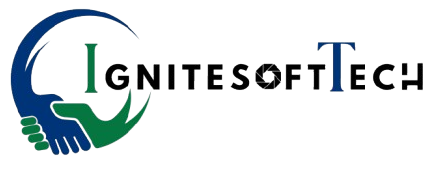

What is Azure DevOps?
Azure DevOps is a set of development tools and services offered by Microsoft that support the entire software development lifecycle. It provides a comprehensive platform for planning, developing, delivering, and maintaining software. Azure DevOps includes features such as version control, project management, continuous integration and delivery (CI/CD), testing, and monitoring, all integrated into a single platform. It helps teams collaborate effectively and streamline their development processes.
Benefits of Azure DevOps:
- Integrated Development Tools: Azure DevOps offers a wide range of tools for planning, development, testing, and deployment, all in one platform, enhancing productivity and collaboration.
- Scalable CI/CD Pipelines: Automated CI/CD pipelines allow teams to build, test, and deploy applications quickly and reliably, reducing time to market.
- Version Control: Azure Repos provides Git repositories for version control, enabling teams to track changes, collaborate on code, and manage project history effectively.
- Agile Project Management: With tools like Azure Boards, teams can plan and track work using Kanban boards, backlogs, and sprint planning, promoting an agile approach to development.
- Enhanced Collaboration: Azure DevOps facilitates collaboration among team members, regardless of location, through integrated communication tools and shared project resources
Why Choose Ignitesofttech?
- Real-Time Training from Experienced Professionals
- Daily Recorded Sessions
- Ongoing Technical Support After Course Completion
- Hands-On Project Implementation
- 100% Real-World Projects and Use Cases
- Curriculum Reflecting the Latest Industry Trends
Course Curriculum
• What is IT?
• What is Cloud computing?
• Cloud service providers in IT
• Why Azure Cloud?
• Introduction to automation process
• Introduction to OS
• Types of OS
• Linux OS architecture
• Linux commands
• Networking Management
• Storage Management
• Disk
• Partitions
• LVM
• User and permissions Management
• Package Management
• Types of Shells
• Script execution approaches
• Variables
• Operations
• Conditions
• Loops
• Functions
• Best practices
• Cloud Regions and Availability zones (Data Centers)
• Azure account creation (portal and dev)
• MicrosoG Entra ID (Azure Active Directory)
• Domains
• Tenants
• Subscriptions
• Licenses
• Users
• Groups
• Azure resource access management workflow
• Resource groups
• Resource manager
• Resource providers
• AD Roles
• Introduction to Physical/Bare-metal servers/machines
• What is Virtualization (Hypervisor)?
• Azure Virtual Machines
• Images (OS) and sizes (resources)
• Password and key based authentication
• Disk types (OS disk and Data disk)
• Disaster recovery
• Monitoring
• Custom data and cloud-init (post actions)
• Introduction to networking concepts • IP address calculations • Classes, CIDR, Subnets, IPv4, broadcast, gateway, Hub, Switches, • Routers • Virtual network • Subnet • Public IP address • NAT gateways • Security (Firewall, DDoS, Bastion Host) • DNS servers • Address spaces • Security • Network manager • Peerings • Service endpoints • Private endpoints • Monitoring
• Introduction to traffic and load balancing • OSI layers • Load Balancer • Application Gateway • Traffic manager • Front Door and CDN profiles
• Introduction to ephemeral and persistent storage • Different storage types • Azure Disks • Blob storage • Azure Files • Data protection (Storage recovery options) • Encryption
• Introduction to containerization technology • Containerization tools • Docker Introduction • Docker Engine installation • Docker Engine architecture • Containers • Images • Storage • volume mount • bind mount • tmpfs mount
• Bridge • Host • None • Overlay • Custom Images build • Docker Compose • Commands • YAML • Compose parameters • Security • Image vulnerability scan tools (Trivy) • Docker bench for Security (CIS) • Azure Container Apps • Azure Container Instances • Azure Container Registry • Image layers • Private and Public repository • Access control
• Kubernetes architecture • Control and compute plane node components • Local Kubernetes Setup • AKS Cluster setup and considerations • PODs • ReplicationController • ReplicaSet • Deployment • DaemonSet • StatefulSet • Jobs and CronJobs • Services • Storage • Volumes • PV and PVC • Storage Classes • CSI drivers • ConfigMap • Secrets • Ingress Controller • Authentication (MicrosoG Intra ID) and RBAC (Azure) • Network Policies (Azure and Calico) • Monitoring • Prometheus • Grafana • EFK • Kubernetes Security • Kube-bench (aquasecurity) • KubeLinter
• Differences between metrics and logs • Activity logs • Alerts • Metrics • Logs • Autoscale • Horizontal scaling (scale-in and scale-out VMs) • Vertical scaling (scale-in and scale-out size) • Insights • Service Health • Managed services • Prometheus • Grafana • Azure Content Delivery Network • Azure Multifactor Authentication • MicrosoG Defender for Cloud • Security alerts • Inventory • Cloud Security Explorer • Workbooks • Cloud security • Web Application Firewall • Introduction vulnerability • Basic understanding of web applications exploits • WAF configuration • WAF policy • WAF for Azure Application Gateway • WAF for Front door • WAF for CDN
• Ansible • Introduction to Configuration Management • Configuration Management tools • Ansible architecture • Ansible installation and setup • Ad-hoc commands • options (--become, --become_user, etc.,) • modules and arguments • ping • apt • command • shell • system • variables • inventory • ansible configuration file • other modules as well • Playbooks • host_vars • group_vars • tasks • blocks • conditions • loops • handlers • playbook variables • var files • Roles • default directory structures • ansible-galaxy command • vtasks • defaults • templates • tests • handlers • vars, etc.,
• Introduction to Infrastructure as a Code • Difference between IaC and CM tools • Terraform architecture • Terraform CLI installation and setup • Azure Credentials configuration • Terraform resources • Terraform variables • Terraform datasources • Terraform workspaces • Terraform state manipulation • Terraform modules • Terraform repository modules • Custom modules • Terraform built-in functions • Version Control System (Git) • Introduction to Version Control System • Difference between CVCS and DVCS • Git working principles • Git commands • init • clone • add • checkout • commit • push • pull • merge • fetch • revert • rebase • branch • tag, etc., • Difference between local and remote repositories • SonarQube (Static Code Analysis) • • What is static code analysis? • SonarQube components • SonarQube Setup and Configuration • Projects • CI introduction and configuration • Rules • SonarQube UI analysis
• Introduction to DevOps • DevOps working principles • Introduction to DevSecOps • DevSecOps working principles • What is CICD? • Azure Repos • Buil-in functionalities • CICD integration • Git topics
• Introduction to Pipelines • Pipeline YAML • Azure Pipeline agents (MicrosoG hosted and Self-hosted agents) • CI with Azure Repos • CD with Kubernetes, Self-hosted agents, Serverless platforms, etc., • RBAC (Pipeline access control) • pool • steps • tasks • script • Triggers (Manual and Auto) • Pipeline variables • template
• What is artifact? • Packages (Python packages, npm, Maveen, etc.,) • Feeds • Recycle bin
• Introduction agile model and Scrum • Introduction to boards • New • In-progress • Staging • Done • Backlogs • Work items • Sprints • Plans • Queries
Can we help you?

